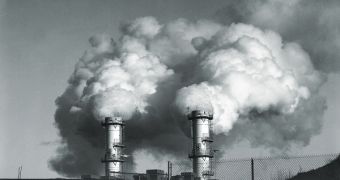Our ever-increasing demand for electrical energy may be our downfall as a civilization, energy economists announced in IEA's report 2008 World Energy Outlook. More and more burnt fossil fuel means increasing amounts of greenhouse gases in our atmosphere, which in turn trap sunlight and create the warming effect that has thus far driven countless species to extinction.
Increasing temperatures mean climate change in most regions on Earth. Natural habitats, which animal and plant species inhabit, will shrink, disappear or move to higher latitudes or heights. This destroys the natural balance of the ecosystem and creates niches, allowing for new predators to enter the system, which, in turn, damage it even further. When species move out of the rain forests, for example, tree species begin to lose their diversity, which causes less carbon to be absorbed by the "lungs of the planet."
In fact, virtually every living thing on Earth is interconnected, and a disturbance in the atmosphere is about the worst thing that can happen, apart from the planet going "boom" altogether. With this in mind, the IEA is desperately trying to nudge nations in the right direction, by publishing plans, to be considered in the 2009 Copenhagen meeting, a climate change discussion that will most likely result in an agreement that will replace the Kyoto Protocol.
The necessity for fossil fuel dependency reduction has been emphasized repeatedly in the last IEA report, especially now that Brazil has found large oil deposits off-shore, and China keeps building coal-powered electrical plants throughout the country. Though estimates say that oil, coal and natural gases will expire by 2030, current estimates say that, at the rate our demand is increasing, it's highly unlikely that production levels will keep up.
However, increased production levels will most definitely cause huge increases in the amounts of carbon in the atmosphere, which will lead to more warming effects. Even a 2°C increase could mean the extinction of most major animal species. A 6°C increase, which IEA estimates is also possible, will virtually wipe out all mammals and fish, and would cause catastrophic weather events that will most likely kill a lot of people as well.

 14 DAY TRIAL //
14 DAY TRIAL //